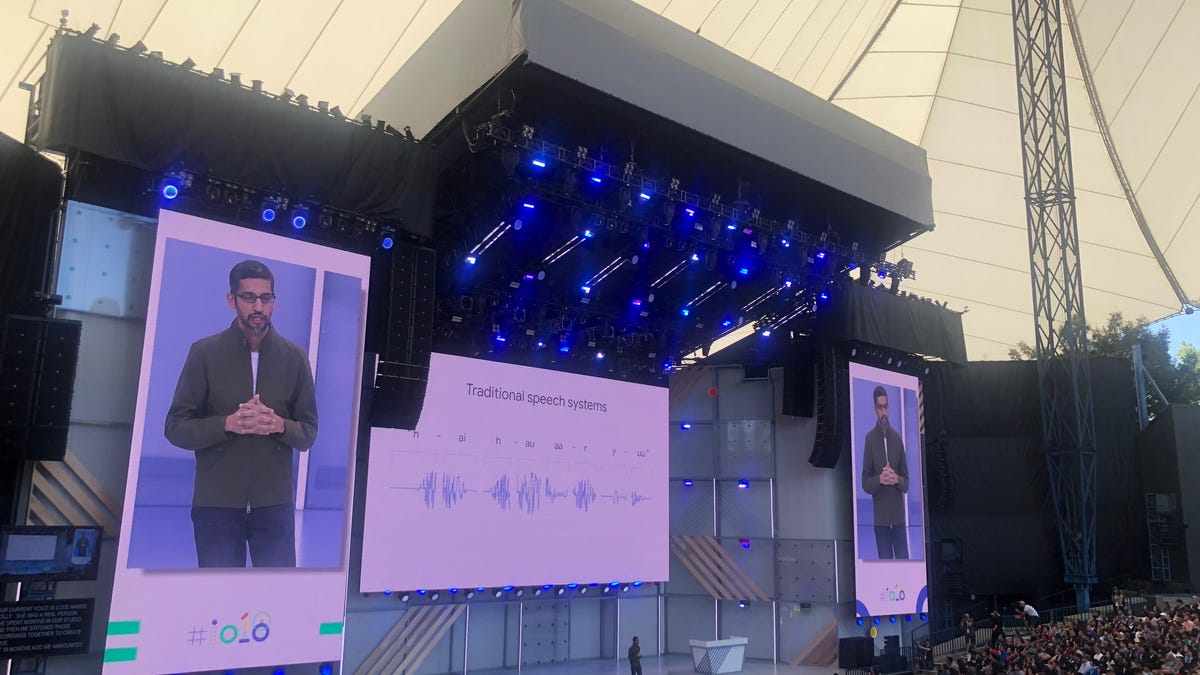Alphabet chairman says Google Duplex passes Turing test in one specific way
John Hennessy, the former Stanford president, said Google's lifelike voice AI points to what's coming.

Google's Duplex technology sounds eerily human.
John Hennessy, board chairman of Google's parent company Alphabet, says the search giant has reached an important milestone: Passing the Turing test.
Earlier this week, Google CEO Sundar Pichai unveiled Duplex, an artificial intelligence voice technology that sounds jaw-droppingly human. It's used with the Google Assistant, the search giant's rival to Amazon's Alexa and Apple's Siri, and for now it'll mainly be used to book appointments and reservations on your behalf over the phone.
It uses verbal ticks like "uh" and "um." It speaks with the cadence of a natural human voice, pausing before responding and elongating certain words as though it's buying time to think. When it was demoed on stage at I/O, Google's annual developer conference, the 7,000 attendees in the audience were floored.
It's so convincing that Hennessy, a former president of Stanford University, said Duplex passes the test proposed in 1950 by English computer scientist Alan Turing. The test is a way of evaluating a machine's intelligence -- to pass, a robot must behave in a way indistinguishable to a human.
"In the domain of making appointments, it passes the Turing test," Hennessy said Wednesday at I/O, during a talk about the future of computing.
But he was quick to stress that it passes in only one specific way -- in the distinctive task of booking appointments. "It doesn't pass it in general terms, but it passes in that domain. And that's really an indication of what's coming."
The technology is so lifelike that it's generated a lot of debate about the ethics of realistic robots interacting with humans. People have shown concern about machines that can so easily deceive humans. The technology has raised questions about what disclosures companies should make to people interacting with the bots, and how Google can make sure this kind of technology isn't abused.
Right now Google is thinking about the best way to make those disclosures, Yossi Matias, Google's vice president of engineering, said last week while giving CNET an early look at the project.
"We need to be thoughtful about how we have this interaction while we're experimenting with it," Matias said. "We believe it's right to do this with transparency."
Tech Enabled: CNET chronicles tech's role in providing new kinds of accessibility.
Blockchain Decoded: CNET looks at the tech powering bitcoin -- and soon, too, a myriad of services that will change your life.

